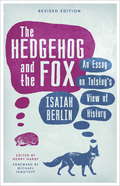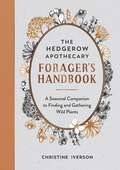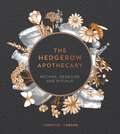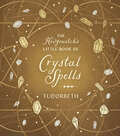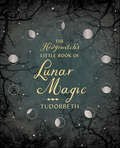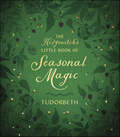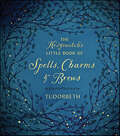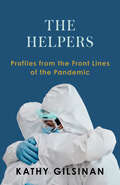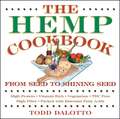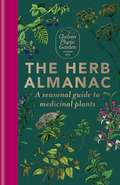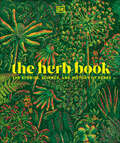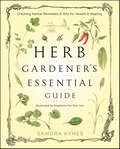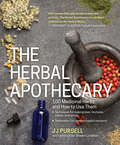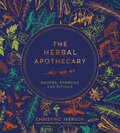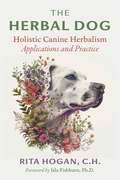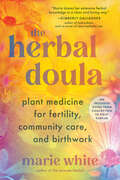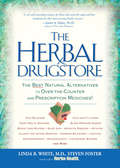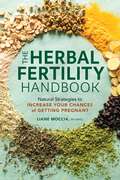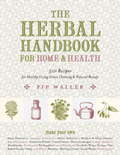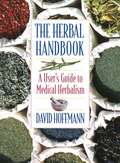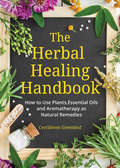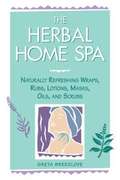- Table View
- List View
The Hedgehog And The Fox: An Essay on Tolstoy's View of History (W&N Essentials)
by Isaiah BerlinIsaiah Berlin's classic essay on Tolstoy - an exciting new edition with new criticism and a foreword.'The fox knows many things, but the hedgehog knows one big thing.' This fragment of Archilochus, which gives this book its title, describes the central thesis of Isaiah Berlin's masterly essay on Tolstoy. There have been various interpretations of Archilochus' fragment; Isaiah Berlin has simply used it, without implying anything about the true meaning of the words, to outline a fundamental distinction that exists in mankind, between those who are fascinated by the infinite variety of things (foxes) and those who relate everything to a central all-embracing system (hedgehogs). When applied to Tolstoy, the image illuminates a paradox of his philosophy of history, and shows why he was frequently misunderstood by his contemporaries and critics. Tolstoy was by nature a fox, but he believed in being a hedgehog.
The Hedgehog And The Fox: An Essay on Tolstoy's View of History (W&N Essentials)
by Isaiah BerlinIsaiah Berlin's classic essay on Tolstoy - an exciting new edition with new criticism and a foreword.'The fox knows many things, but the hedgehog knows one big thing.' This fragment of Archilochus, which gives this book its title, describes the central thesis of Isaiah Berlin's masterly essay on Tolstoy. There have been various interpretations of Archilochus' fragment; Isaiah Berlin has simply used it, without implying anything about the true meaning of the words, to outline a fundamental distinction that exists in mankind, between those who are fascinated by the infinite variety of things (foxes) and those who relate everything to a central all-embracing system (hedgehogs). When applied to Tolstoy, the image illuminates a paradox of his philosophy of history, and shows why he was frequently misunderstood by his contemporaries and critics. Tolstoy was by nature a fox, but he believed in being a hedgehog.
The Hedgerow Apothecary Forager's Handbook: A Seasonal Companion to Finding and Gathering Wild Plants
by Christine IversonLearn to forage in the hedgerows like the herbalists of the pastAs many of us look for ways to live a more planet-friendly lifestyle, the sustainable and ethical art of foraging offers us a way to connect with the world around us. It is a practice rich in tradition and steeped in history, and one that links us to our past and our future.This foraging companion is designed to be taken with you on your adventures into the hedgerows, forests and woodland all year round. Helpfully arranged by season, this book includes clear photographs to aid plant identification, ideas on how best to prepare and preserve your finds, fascinating foraging and plant folklore, and handy pages to make your own notes and drawings.Additional features:- A month-by-month foraging calendar- Advice on foraging etiquette and tips for creating a forager's toolkitThis is the essential guide to enjoying the bountiful delights of the hedgerows.
The Hedgerow Apothecary: Recipes, Remedies and Rituals
by Christine IversonLearn to forage in the hedgerows like the herbalists of the past with this best-selling beginner's guideFor centuries our ancestors looked to nature not just for food, but also for healing. To this day, our ancient hedgerows, woodlands and forests are still full of remedies - and they're waiting to be discovered.This is the essential guide to enjoying the bountiful delights of the natural world. Learn how to make delicious preserves, healing balms, soothing toddies and cures for colds with nature's jewels such as rose hips, elderberries and mugwort.You will also find:- Photographs to help you safely identify edible plants- Advice on what is available in each season- Guidance on how best to prepare and preserve your finds- The fascinating folklore and history of foragingEvery walk is an opportunity to learn, identify a new plant, gather something to eat and reconnect with nature - so dive in to begin your foraging adventure.
The Hedgewitch's Little Book of Crystal Spells (The Hedgewitch's Little Library)
by Tudorbeth150 Crystals for Spells, Elixirs, Divination & MoreMaster mineral magic with this small but robust guide to the mystical powers of gems, stones, and crystals. Organized into sections focused on each of the five elements—earth, air, fire, water, and spirit—this uplifting book helps you connect to the energies of crystals and enhance your life with their ancient wisdom.Tudorbeth walks you through crystal basics and teaches you how to use them to cast dozens of spells for success, love, protection, and healing. Concoct gem elixirs to imbibe their magical essences and glimpse the future with crystal divination. With this book's grounded wisdom, you will attune to one of Mother Earth's greatest secrets: crystal magic.
The Hedgewitch's Little Book of Lunar Magic (The Hedgewitch's Little Library)
by TudorbethAs a central figure of the Craft, the moon holds a special place in any hedgewitch's practice. Through more than a hundred spells, recipes, and workings, this two-color, hardcover book shows you how to honor Our Lady of the Night and utilize her power to amplify your magic and affirmations.Discover lunar myths and legends as well as correspondences to herbs, crystals, and deities. You will also learn how to connect with changing energies in each season and moon phase. With guidance for drawing down the moon, making moon water, creating a moon altar, and other sacred activities, The Hedgewitch's Little Book of Lunar Magic features ample inspiration for honoring and harmonizing with this revered celestial body.
The Hedgewitch's Little Book of Seasonal Magic
by TudorbethOver 100 Recipes, Spells & Crafts to Connect with Seasonal EnergiesPlants, wildlife, the environment, and even weather phenomena are sacred to the hedgewitch. This beautiful book follows the sun around its seasonal year, providing more than a hundred recipes, spells, potions, and crafts to help you reconnect with natural and elemental energies. You'll enjoy recipes for jams, jellies, chutneys, and syrups as well as spells, Esbat rituals, and correspondences for each of the seasons. Tudorbeth shares enchantments for safe travels, luck, preventing floods, increased passion, and many other purposes. From winter spice marmalade to Mabon apple garland, this hands-on book helps strengthen your magic as you travel through the Wheel of the Year.
The Hedgewitch's Little Book of Spells, Charms & Brews (The Hedgewitch's Little Library)
by TudorbethExplore old-world magic and contemporary charms with this brilliant book of enchantments. Within these pages, you will discover more than one hundred spells, charms, and recipes for love, money, health, family, career, and more. Author Tudorbeth has selected the best traditional workings along with contemporary spells that can be done with readily available ingredients.Hedgewitchery is the individual pursuit of living in harmony with nature while practicing magic. This book shares everything from old-world spells to magical enchantments for modern problems like credit card issues and unwanted house guests. You will discover delicious recipes such chocolate avocado mousse and charms and spells for prosperity, good luck, fertility, friendships, and so much more. All of the spells can be modified to suit your own individual needs and feelings, and the author includes helpful suggestions for incorporating herbs, crystals, and oils to empower your magic.
The Helpers: Profiles from the Front Lines of the Pandemic
by Kathy GilsinanA deeply moving narrative of the coronavirus pandemic, told through portraits of eight individuals who worked tirelessly to help others. In March 2020, COVID-19 overtook the United States, and life changed for America. In a matter of weeks the virus impacted millions, with lockdown measures radically reshaping the lives of even those who did not become infected. Yet despite the fear, hardship, and heartbreak from this period of collective struggle, there was hope. In The Helpers, journalist Kathy Gilsinan profiles eight individuals on the front lines of the coronavirus battle: a devoted son caring for his family in the San Francisco Bay Area; a not-quite-retired paramedic from Colorado; an ICU nurse in the Bronx; the CEO of a Seattle-based ventilator company; a vaccine researcher at Moderna in Boston; a young chef and culinary teacher in Louisville, Kentucky; a physician in Chicago; and a funeral home director in Seattle and Los Angeles. These inspiring individual accounts create an unforgettable tapestry of how people across the country and the socioeconomic spectrum came together to fight the most deadly pandemic in a century. Beautifully written and profoundly moving, The Helpers is about ordinary people who stepped up to meet an extraordinary moment. “This is the story of how we beat the pandemic,” Gilsinan writes, “but I hope that it someday serves as an introduction to the story of how we made a better country. That future starts with people like the ones in this book.”
The Hemp Cookbook: From Seed to Shining Seed
by Todd Dalotto• The first cookbook devoted to the use of super-nutritious hemp seed. • Contains more than 50 low-fat, high-fiber, vegetarian recipes for both hempsters and mainstream cooks. • Nature's best source of protein and EFAs--better even than soy. Born from the flower of the cannabis plant is a seed bursting with vital energy that nourishes, heals, rebuilds, and refuels our bodies. Now this hallowed plant gets to shine in the world's first cookbook devoted exclusively to the delicious and nutritious dishes you can make using hemp seed. Packed with easily digestible proteins that contain the correct proportions of all eight essential amino acids necessary for good health, hemp seed surpasses even soy as the best vegetable protein available. High in dietary fiber but low in saturated fat, this miraculous and ancient food is also the planet's best source of essential fatty acids (EFAs), which a wealth of scientific research has shown help to prevent degenerative diseases, clean the arteries, improve brain function, and boost our immune systems. In The Hemp Cookbook, Todd Dalotto serves up a tantalizing smorgasbord of recipes that combine the unique nutritional advantages of hemp seed with other vitamin- and mineral-rich foods, creating one of the healthiest and most original cookbooks ever offered. From hearty breakfasts of Hemp Pancakes to gourmet dinners of Vegan Cannabis Stuffed Shells and holiday toasts with rich and creamy Hemp Nog, Dalotto has produced a book that will be welcomed by hempsters and mainstream cooks alike. With chapters providing complete nutritional information on hemp seed, a culinary history of cannabis around the world, a listing of sources for hemp foods, and instructions for creating your own hemp oils, flours, milks, and butters, The Hemp Cookbook is the first and last word on cannabis cuisine.
The Herb Almanac: A seasonal guide to medicinal plants
by Chelsea Physic GardenA beautiful and accessible seasonal guide to herbalism from the historic botanic garden.Discover the best times of the year for growing specific healing herbs and also when and how to forage for wild medicine, such as water mint, St John's Wort, hawthorn berries and rosehips. Recipes are included for how to use these herbs, along with folklore stories from herb wives and hedge witches, the meanings behind their names and the history of how these natural medicines were discovered.There are plenty of tips for how to create your own medicinal herb garden, even with just a few pots, along with a biodynamic guide for sowing, planting and harvesting. Including detailed hand-drawn line illustrations to help deepen your understanding, The Herb Almanac is the perfect gift for any nature lover.CONTENTS INCLUDES:IntroductionIncluding using herbs as seasonally appropriate remedies and tonics, an overview of herbs in folklore, wild medicine, magic, superstition, ritual, tradition and literature and herbs in religion and floriography (the language of flowers)Gathering and Using HerbsIncluding safe, legal and successful foraging, a brief introduction to growing your own herbs and preparing, drying and preserving herbsWitches' Brews: Poisonous Plants Including an overview of herbs with interesting stories that cannot be easily used, e.g. wormwood, hemlock and mandrakeHerb EncyclopediaIncluding detailed information on over 50 different herbs
The Herb Almanac: A seasonal guide to medicinal plants
by Chelsea Physic GardenA beautiful and accessible seasonal guide to herbalism from the historic botanic garden.Discover the best times of the year for growing specific healing herbs and also when and how to forage for wild medicine, such as water mint, St John's Wort, hawthorn berries and rosehips. Recipes are included for how to use these herbs, along with folklore stories from herb wives and hedge witches, the meanings behind their names and the history of how these natural medicines were discovered.There are plenty of tips for how to create your own medicinal herb garden, even with just a few pots, along with a biodynamic guide for sowing, planting and harvesting. Including detailed hand-drawn line illustrations to help deepen your understanding, The Herb Almanac is the perfect gift for any nature lover.CONTENTS INCLUDES:IntroductionIncluding using herbs as seasonally appropriate remedies and tonics, an overview of herbs in folklore, wild medicine, magic, superstition, ritual, tradition and literature and herbs in religion and floriography (the language of flowers)Gathering and Using HerbsIncluding safe, legal and successful foraging, a brief introduction to growing your own herbs and preparing, drying and preserving herbsWitches' Brews: Poisonous Plants Including an overview of herbs with interesting stories that cannot be easily used, e.g. wormwood, hemlock and mandrakeHerb EncyclopediaIncluding detailed information on over 50 different herbs
The Herb Book: The Stories, Science, and History of Herbs
by DKImmerse yourself in stories and pictures of these useful plants, from herb gardens to remote wildernesses. Herbs have been used by humans throughout history – for cooking, medicine, rituals, and more. They are also a huge part of the modern world, from gardening, food, and cosmetics to medicines fighting diseases such as malaria. With vibrant illustrations and expert knowledge, The Herb Book takes a close-up look at a wide range of herbs from around the world, showcasing their botanical characteristics, medicinal, cosmetic, and culinary properties and uses, and cultural impact on the lives of humans. Dive deep into the pages of this horticultural handbook to discover: - Detailed original photography combines with historical and contemporary images to create a compelling visual mix.- Provides a global view of herbs and their culinary, medicinal, and cosmetic uses around the world.- Contains in-depth coverage of over 80 herb species.- Continues the warm visual aesthetic of The Tree BookFeaturing key scientific facts along with historical and mythological stories, this book provides a rich blend of information on these extraordinary plants and their role in our world. Proving a must-have volume for gardeners, horticulturalists, and amateur herbalists alike, as well as anyone interested in natural remedies, cooks and foodies too!
The Herb Gardener's Essential Guide: Creating Herbal Remedies & Oils for Health & Healing
by Sandra KynesLearn how to use twenty-eight popular, easy-to-grow herbs to treat everyday ailments and maintain good health. From selecting plants to harvesting and storing them to making remedies and savories of all sorts, The Herb Gardener's Essential Guide presents an abundance of practical and satisfying ways to incorporate herbs into a healthier lifestyle and diet.Utilizing both herbs and essential oils, this beautifully illustrated guide explains how to choose and make the ideal herbal mixture for a wide variety of medicinal and culinary uses. Need help getting to sleep? Try a cup of Thyme to Settle Tea. Add a sweet, spicy flavor to roast meat or vegetables with Coriander Spiced Butter. Ease muscle pain and stiffness with soothing Rosemary Warming Massage Oil. Featuring an ailments-and-issues guide, instructions for creating a personalized apothecary garden, and detailed profiles for each of the herbs, this accessible book belongs on every gardener's shelf.
The Herbal Apothecary: 100 Medicinal Herbs and How to Use Them
by Jj Pursell“A brilliant addition to any library.” —Rosemary Gladstar, herbalist and bestselling author More and more people are exploring the healing possibilities of plant-based medicines, and health shops across the country now stock their shelves with natural remedies, but treatments can easily be made at home. The Herbal Apothecary profiles 100 of the most important medicinal plants with striking photographs and step-by-step instructions for making herbal teas, tinctures, compresses, and salves to treat everything from muscle strain to the common cold or anxiety. This holistic guide also includes advice for the home gardener on growing and foraging for medicinal plants. Incorporating traditional wisdom and scientific information, The Herbal Apothecary provides an accessible and comprehensive introduction to plant-based medicine. With the guidance of naturopath JJ Pursell, herb enthusiasts can learn how to safely create their own remedies using plants they know and love.
The Herbal Apothecary: Recipes, Remedies and Rituals
by Christine IversonFrom the best-selling author of The Hedgerow Apothecary, The Garden Apothecary and The Hedgerow Apothecary Forager's Handbook Learn the sustainable and ethical art of the apothecarist with this beautiful photographic guide to working with herbs and spices to make healing remedies and delicious recipes. Discover the fascinating properties and therapeutic benefits of everyday ingredients found in herb gardens and kitchen cupboards. For centuries, herbalists and healers have looked to nature for remedies and have made salves, toddies, teas, balms and preserves as cures for common ailments and to add piquant aromas and flavours to dishes - and now you can too. Inside you will find:- Photographs to help you safely identify edible plants - Advice on what is available in each season - Guidance on how best to grow, prepare and preserve your herbs and spices - Useful herbal remedies and delicious recipes to try - The fascinating folklore and history of these majestic aromatic plants
The Herbal Apothecary: Recipes, Remedies and Rituals
by Christine IversonFrom the best-selling author of The Hedgerow Apothecary, The Garden Apothecary and The Hedgerow Apothecary Forager's Handbook Learn the sustainable and ethical art of the apothecarist with this beautiful photographic guide to working with herbs and spices to make healing remedies and delicious recipes. Discover the fascinating properties and therapeutic benefits of everyday ingredients found in herb gardens and kitchen cupboards. For centuries, herbalists and healers have looked to nature for remedies and have made salves, toddies, teas, balms and preserves as cures for common ailments and to add piquant aromas and flavours to dishes - and now you can too. Inside you will find:- Photographs to help you safely identify edible plants - Advice on what is available in each season - Guidance on how best to grow, prepare and preserve your herbs and spices - Useful herbal remedies and delicious recipes to try - The fascinating folklore and history of these majestic aromatic plants
The Herbal Dog: Holistic Canine Herbalism Applications and Practice
by Rita Hogan&“Even if skeptical readers don&’t come away completely convinced, they&’ll be enormously educated—Hogan imparts a huge amount of biological information about dogs, and does it all with an easy readability that will make quite a bit of it stick. An informative and sometimes eye-opening examination of natural remedies for helping your dog.&”—Kirkus Reviews• Teaches the tenets of holistic herbalism for the individual dog• Presents safe, clinically proven, and effective protocols for common canine conditions, from acid reflux to allergies to itching, scratching, and yeast• Lays out a comprehensive materia medica of canine-specific herbs, including what conditions they are good for, their energetics, internal and external use, safe dosages, and contraindicationsIn this comprehensive guide to holistic care for dogs, clinical canine herbalist Rita Hogan explains that by looking at dogs as individual ecosystems with unique personalities, physiology, and needs, we can select effective and personalized herbal remedies to support their constitutions and provide relief from many different ailments.Hogan, who has spent more than two decades working with canines, uses energetic principles (cool, warm, dry, damp) to reveal how herbs are not "one size fits all" and how to find the root cause of chronic imbalances. She discusses in depth how a dog&’s main organ systems work, how they are connected to each other, and why we need to understand them when choosing specific herbs and foods.Presenting safe, clinically proven, and effective protocols for common canine conditions—from acid reflux to allergies to itching, scratching, and yeast—Hogan presents a wide variety of holistic and herbal remedies: from herbal tinctures, glycerities, and phytoembryonics to flower essences, essential oils, medicinal mushrooms, and homeopathy. Her comprehensive materia medica of canine-specific herbs that she uses in her practice details what herbs are good for which conditions and why, what types of energetics are involved, safe dosage recommendations for each herbal remedy, and when to discontinue an herb.Allowing each of us to take a hands-on approach to our canine companions&’ health and longevity, this herbal guide outlines how to help them live their best lives by our sides.
The Herbal Doula: Plant Medicine for Fertility, Community Care, and Birthwork--An inclusive guide from conception to postpartum
by Marie WhiteA modern, inclusive guide to plant-based reproductive medicine: herbal remedies and collective care for conception, pregnancy, birth, postpartum, and beyond30+ herbal protocols and preparations for morning sickness, fertility, and postpartum healingHerbal medicines are effective for a host of pregnancy and birth-related concerns. From nausea and mastitis to c-section wounds and fertility assistance, all-natural remedies can be used safely and effectively—and can even amplify the positive outcomes of conventional reproductive medicine treatments. Yet many women and birthing people don&’t know where to start, or how to find reliable information that&’s vetted, trustworthy, and—most importantly—safe for their fertility, babies, and babies-to-be.The Herbal Doula demystifies herbal reproductive care, offering open and expert guidance in being your own budding fertility, conception, and pregnancy doula—or supplementing your existing care plan with your midwife, doula, or physician. Practical chapters explore:Herbs for fertility, infertility, and inclusive conceptionHerbal remedies for common pregnancy side effects like nausea, heartburn, constipation, hemorrhoids, edema, UTIs, fatigue, and prenatal mood swingsMiscarriage, abortion, and caring for yourself after pregnancy lossHerbs for the fourth trimester: perineal injuries, C-section wounds, breast care, and postpartum depressionHerbal approaches to breastfeeding and chestfeeding: increasing and decreasing milk supply, plugged ducts, and mastitisHow, when, and when not to use herbs while pregnant and breastfeedingHow to source, store, and use herbs safelyCare and herbal medicine for doulas and birthworkersA doula&’s essential materia medicaWhile many traditional herbals rely on outdated gender norms, classist assumptions, or problematic standards of care, The Herbal Doula is written for readers of all genders and body types, approaching herbal care with a HAES (health at every size) lens. It celebrates herbal pregnancy and birth work as collective care, recognizing chosen family, disability dignity, and the importance of daily practice in a guide you&’ll return to again and again throughout any and all stages of your journey.
The Herbal Drugstore: The Best Natural Alternatives to Over-the-Counter and Prescription Medicines!
by Steven Foster Linda B. White The Staff Of Herbs For HealthEase Symptoms, Fight Disease, and Supercharge Immunity--All Without Drugs or Chemicals! You're about to enter a completely different kind of drugstore. One where herbal medicines are offered right alongside conventional pharmaceuticals. Where bottles of feverfew stand next to bottles of aspirin, and echinacea has its place among other cold and flu remedies.The Herbal Drugstore is the only place where you can compare mainstream drug treatments and their herbal alternatives for close to 100 common health problems. You'll find herbs that have the same healing powers as many prescription and over-the-counter medications--only they're cheaper and gentler, with few or no side effects.Whether you need fast first-aid or long-term relief, The Herbal Drugstore has a remedy for you. Here's just a sampling:* Immobilized by arthritis? Rub on capsaicin cream, a natural pain reliever made from hot peppers* Can't sleep? Start snoozing with valerian--it's as effective as Valium, but it isn't addictive* Want to lose a few pounds? Get a helping hand from psyllium, an herbal alternative to appetite suppressants* Feeling stressed? Calm jangled nerves with ginseng--it won't undermine alertness* Battling bronchitis? Clear up that cough with licorice, a natural expectorant* Need help with high blood pressure? Turn to hawthorn--it has much in common with beta blockers, except for the side effectsThe Herbal Drugstore features these and many more herbal remedies--712 in all! They're profiled right next to their pharmaceutical counterparts, so you can make your own comparisons and decide which treatments are best for you.
The Herbal Fertility Handbook: Natural Strategies to Increase Your Chances of Getting Pregnant
by Liane Moccia RH (AHG)A comprehensive guide for how to use herbs, natural supplements, and other holistic methods to optimize fertility and improve your chances of conceiving.The Herbal Fertility Handbook provides clear, evidence-based strategies to support egg and sperm quality, and overall fertility to help you improve your chances of getting pregnant. Written in a gender-inclusive style and inspired by her own struggle with fertility issues, author Liane Moccia offers strategies based on proper nutrition, fertility-boosting herbs and supplements, analyzing environmental exposures, and improving lifestyle factors such as sleep, stress, and movement. Whether someone is in the planning stage or has been trying for a few months or for several years, this book presents a clear roadmap, guiding you to take an active role in optimizing your fertility. This publication conforms to the EPUB Accessibility specification at WCAG 2.0 Level AA.
The Herbal Handbook for Home and Health
by Pip WallerKitchen pharmacy meets green cleaning and natural beauty in this comprehensive handbook of 501 recipes that harness the power of plants to enhance wellness and toxin-free living. Expert herbalist Pip Waller provides a wealth of information about growing, collecting, preserving, and preparing herbs for a variety of purposes--from cleaning products, to food and drink, medicines, beauty products, and more. Attractive and easy to use, The Herbal Handbook for Home and Health includes growing tips and profiles of herbs, guidelines for setting up an herbalist's kitchen, and techniques to make everything from tinctures to tonics. A valuable resource for anyone affected by allergies or sensitivities, this compendium is handsomely produced with two-color printing throughout and more than three hundred striking illustrations.The Handbook includes contributions from herbalists from around the world and encompasses recipes that range from very simple to more complex. Seasoned herbalists as well as those just beginning to explore the world of herbs will find something to start their own nontoxic, non-allergenic domestic revolution.The book includes: * A history of herbal lore * The herbalist's kitchen--equipment and procedures for harnessing the power of plants * Green cleaning products (from floor wax to stain removers) * Herbal pharmacy (from throat lozenges to hangover cures) * Nutritional supplements and detoxes * First aid (from anti-anxiety drops to bruise ointment) * For travel (insect repellant to anti-nausea drops) * Food and drink (breads, butters, wines, teas) * Beauty and balms (toothpaste to shampoo to lip balm) * Kitchen Pharmacy * Food & Drink * Beauty, Balms & Personal Care
The Herbal Handbook: A User's Guide to Medical Herbalism
by David HoffmannWell-respected herbalist David Hoffmann's comprehensive and practical guide to herbal medicine. • Discusses the history and modern practice of herbalism, including Chinese, Native American, and Welsh influences. • Includes a practical reference section listing the effects of various herbs, with prescriptions on how to use them for a wide range of illnesses. • Covers the fundamentals of growing, drying, storing, and cooking with herbs. • Over 45,000 copies of previous edition sold. This compendium of medical herbalism by one of the most eminent herbalists practicing today is both comprehensive and practical. Answering basic as well as complicated questions about herbal medicine, it provides both the novice and the experienced practitioner with a reliable framework in which to develop their herbal skills. A discussion of the history and modern practice of herbalism, encompassing the influences of Welsh, Chinese, and Native American herbal medicine is followed by a practical reference section that lists the various actions herbs have on the body (carminative, anti-inflammatory, etc.), with examples of herbs and their mode of activity in each category. Herbal prescriptions for various illnesses are also organized under the main systems of the body so that information can be quickly and easily referenced. A final section covers the fundamentals of growing, drying storing and cooking with herbs, as well as the making of infusions, decoctions, oils, and ointments. The author also provides helpful introductions to aromatherapy and plant medicines.
The Herbal Healing Handbook: How to Use Plants, Essential Oils and Aromatherapy as Natural Remedies
by Cerridwen GreenleafA spiritual guidebook to treating ailments and preventing illness using plants, essential oils, aromatherapy, and other natural elements.Bestselling author Cerridwen Greenleaf shares the healing power of plants, roots, herbs, essential oils, aromatherapy, and all things natural remedies. If you are tired of automatically turning to chemical treatments, or just want to have more plant-based care options, The Herbal Healing Handbook is the book for you.While health care debates rage all around us, one way to take good care of yourself and your loved ones is with the “kitchen cabinet cures” in this book. When our great grandmothers needed to attend to the cuts, bruises, colds, flu’s fevers, and other illnesses their family suffered, they didn’t have a corner drugstore. Instead, these wise women relied on simple wisdom, common sense, and pantries well stocked with herbal remedies. These preparations were made from plants that grew in the kitchen garden or wild weeds gathered outside. The Herbal Healing Handbook combines the wisdom of our elders with a modern kitchen herbalist’s sensibility.In The Herbal Healing Handbook you will:Learn about natural remedies you can make yourselfTreat inflammation and painBuild energyImprove your attitude and mindsetGain key knowledge about plants, roots, essential oils, and aromatherapyPerfect for readers of The Healing Power of Essential Oils, Encyclopedia of Herbal Medicine,or The Green Witch.
The Herbal Home Spa: Naturally Refreshing Wraps, Rubs, Lotions, Masks, Oils, and Scrubs
by Greta BreedloveThis book tells all about how to make easy, affordable, and effective herbal spa treatments at home. Covers treatments for the hair, scalp, skin, cosmetics, body lotions and wraps, and more. Gives hints on where to find the ingredients, basic uses of herbs and other ingredients, and hints on ways to "tweak" the recipes to make them totally personalized to your needs and for gift giving.
